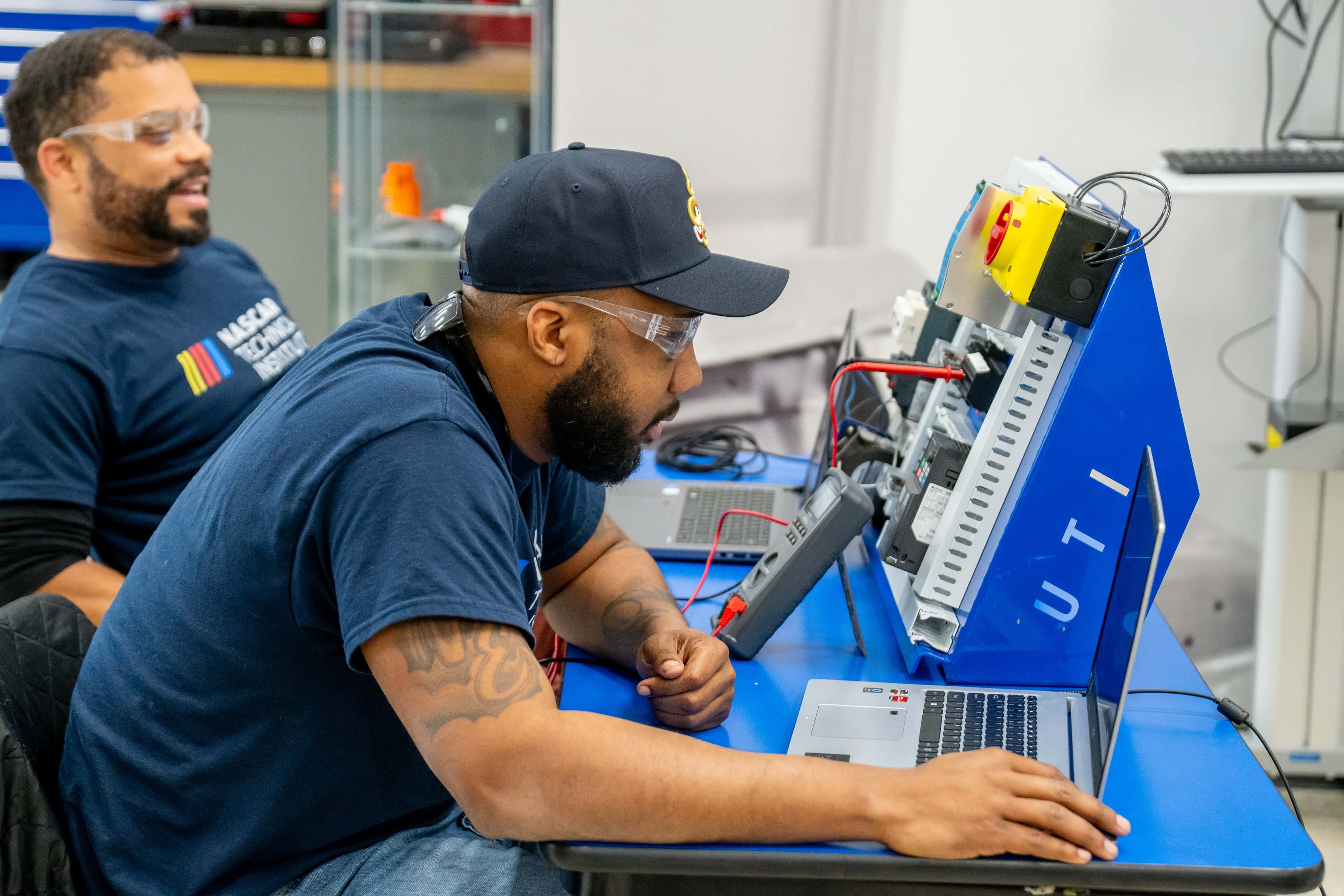As robotics and automation continue to revolutionize manufacturing, logistics, healthcare and countless other industries, staying competitive in the workforce means staying ahead of the curve in skills and knowledge. One of the most effective ways to demonstrate that is by earning nationally recognized robotics and automation certifications.
In this guide, we’ll walk you through the importance of certifications, top credentials to consider, how to become a certified robotics technician, and how Universal Technical Institute (UTI) can help lay the groundwork for your robotics career path.1
Why Robotics & Automation Certifications Matter
Earning a certification in robotics and automation validates your skills and knowledge in a constantly evolving industry. Certifications not only give you a competitive edge but also demonstrate your commitment to safety, precision and technological competence.
Employers seek certified professionals because they know these individuals have met rigorous standards in areas like control systems, programming, maintenance and robotics integration. Whether you’re entering the workforce or looking to advance, certifications open the door to new opportunities and higher earning potential.
Top Robotics & Automation Certifications in 2025
In 2025, several industry-leading organizations offer certifications that are highly recognized. Some of the most in-demand include:
- Certified Manufacturing Technologist (CMfgT) – Offered by SME, this certification emphasizes manufacturing processes, automation and industrial controls.
- Robotics Certification Standards Alliance (RCSA) certifications – Covering basic to advanced robotics knowledge, RCSA certifications are ideal for hands-on technicians.
- FANUC Certified Robot Operator or Technician – Ideal for those working with FANUC robots, one of the most widely used robotic systems in manufacturing.
- Siemens Mechatronic Systems Certification Program (SMSCP) – Focuses on integrated automation, electrical systems and mechanical troubleshooting.
- Certified Automation Professional (CAP) – Offered by ISA, CAP validates skills in control systems, safety and design for experienced professionals.
How to Become a Certified Robotics Technician
Looking for the right robotics technician certification for you? Here’s how you can get started:
Meeting educational requirements
To begin your certification journey, a foundational education in electronics, mechanical systems and computer programming is essential. Most certifications require at least a high school diploma or equivalent, with many candidates benefiting from postsecondary technical training.
Enrolling in robotics training programs
Programs like UTI’s Robotics & Automation Technician program are designed to build your foundational knowledge in robotics and automation systems. You’ll study core concepts like PLC programming, mechatronics and safety protocols.
Completing hands-on robotics & automation training
Real-world training is key to preparing for a robotics career. UTI’s labs simulate modern industrial environments, allowing students to interact directly with automation hardware and software—an experience that’s crucial when taking certification exams or stepping into your first role.
Passing certification exams and earning credentials
Once you’ve built your knowledge and skills, the next step is passing the required certification exam. These exams typically include written components and practical assessments to evaluate your problem-solving skills, programming abilities and knowledge of robotics systems.
Career Opportunities for Certified Robotics Technicians
With robotics and automation integrated into nearly every industry, certified technicians can expect to find roles in industries like automotive manufacturing, aerospace and warehousing.
Our robotics trade school prepares students to pursue entry-level roles. As with any industry, over time, technicians may be able to advance in their careers with experience and hard work.77 Some job examples include:
Entry-level
- Robotics & automation technician
- Control systems technician
- Maintenance technician
Advanced
- Instrumentation and controls technician
- Senior maintenance technician
- Process control tech
- Product tech specialist
- Robotics engineer
Advanced Certifications for Career Growth in Robotics & Automation
Once you’ve gained experience in the field, consider pursuing advanced certifications that focus on next-gen technologies. These specializations can open the door to leadership roles, higher salaries and work on cutting-edge projects.
AI & machine learning in robotics – specialized certifications
As artificial intelligence becomes more integrated into robotics, certifications in AI and machine learning (such as Google’s TensorFlow Developer Certificate or AI/ML courses from AWS and Microsoft) are becoming essential for advanced robotics developers.
Autonomous systems engineering – advanced control systems
Advanced certifications in control systems engineering (like ISA’s CCST or CAP) equip professionals to design and maintain autonomous robots used in smart factories, vehicles and even drone technologies.
Cybersecurity for robotics & automation – protecting industrial networks
Cyber threats are a growing concern in automated systems. Certifications such as the Certified SCADA Security Architect (CSSA) or CompTIA Security+ help robotics professionals safeguard networks and protect sensitive data in industrial environments.
Human-robot collaboration (cobots) – safety & programming
Cobots, or collaborative robots, are designed to work safely alongside humans. Specialized training and certification in cobot programming and safety—offered by companies like Universal Robots—can position you as a valuable asset in manufacturing and logistics.
UTI Offers Foundational Robotics and Automation Training
Whether you're just getting started or looking to pivot into the field of robotics and automation, UTI’s programs provide a strong foundation in mechanical, electrical and digital systems.
At UTI, students benefit from hands-on training, an industry-aligned curriculum and experienced instructors. Our campuses offer access to state-of-the-industry technology and relationships with top industry companies, giving you the tools to prepare for a career.1
Ready to start your robotics career? Request more info or fill out an application today!
Universal Technical Institute of Illinois, Inc. is approved by the Division of Private Business and Vocational Schools of the Illinois Board of Higher Education.

